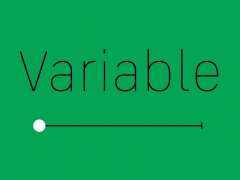100 posters against hate: open call to enter an anti-corovavirus anti-hate campaign
Li Xu and Oleg Veklenko are on a mission against the real coronavirus pandemic aka the hate, the racism and the many incidents of xenophobia spread through the media in the event of the latest virus which challenges humanity and humans alike.
Launching a poster campaign against the bigotry is a noble case of artivism through design to endorse in times of fear and a great excuse to participate with your own design in this "Anti-novel coronavirus 100 posters exhibition."
"Coronavirus disease (COVID-19) that was first reported from Wuhan, China, is rapidly spreading" note the designers behind this initiative.
"This poster exhibition deals with the coronavirus fear and the goal of it is communicating a message for the positive attitude toward the people fighting with and against it, a message of love from everybody" they add.
As noted by the organisers selected posters will be showed in China 2020 and as a separate collection in the 4th Block ,In Kharkov in April 2021. The deadline to enter is the 1st of July 2020.
"The coronavirus outbreak has created global anxiety since the first cases were reported in Wuhan, China, late last year" reports Vox of the pneumonia-like virus which has Chinese cities quarantined, borders sealed, and travel banned.
With the World Health Organization (WHO) declaring the coronavirus "an international public health emergency" the panic has spread online but the many incidents are not based on fear for health. "The panic has exposed a deep-seated xenophobia, and with it, a symptom of its own has surfaced: hostility toward East Asian people" adds Vox.
People across the US are reporting instances of xenophobic harassment while in the UK, Chinese restaurants say they are struggling for business because of widespread misconceptions about their food.
"News of the coronavirus is amplifying a specific form of bigotry, called sinophobia — hostility against China, its people, people of Chinese descent, or Chinese culture" repots Vox on the recent xenophobia in response to 2019-nCoV, an attitude that is deeply rooted in western media.
"Scapegoating, discrimination and victim-blaming have been prevalent in the aftermath of other catastrophic events.They are also related to religious or spiritual understandings of disasters and disease as divine retribution or punishment" writes The Conversation's Korey Pasch.
"Hurricane Katrina in 2005 resulted in various versions of this phenomenon. Many prominent conservative Christians blamed the hurricane on the LGBTQ+ community and the city’s 'sinful' reputation.... This harmful and false narrative was hardly unprecedented. Going back even further, the Great Kanto Earthquake of 1923 led to racist pogroms, or massacres, against some 6,000 Koreans living in Japan due to rumours that they were setting fires that spread in the aftermath of the quake."
"Disasters clearly foment discrimination. And so we should expect these types of responses to future catastrophes and take proactive steps to address them. Furthermore, we need to be mindful of how certain narratives and understandings of disasters act to distract us from far more important elements — including those that leave all of us vulnerable to disasters and disease" he adds.
"Only some outbreaks are racialized"says Roger Keil, a professor in the environmental studies department at York University, who studied the impact of SARS on the city of Toronto to the Verge. As noted "neither H1N1, which emerged in North America, nor mad cow disease, which primarily affected the United Kingdom, generated a racial or ethnic backlash of this magnitude. Yet, diseases that originate in China, like SARS and the new coronavirus, or in Africa — remember the fears about Ebola? — consistently correlate with xenophobia."
"With this new virus, something was triggered that is always latently there, under the surface, which is this fear of the other and the idea that bad things come from elsewhere," Keil says, an echo of old prejudices in the time of social media and fake news war for disinformation. "For now" Keil says, "there are two things to remember every morning when you get up: wash your hands and don’t be racist."
Also stick the to the facts, be aware of the context and be supportive to those at risk or impacted by humanity's latest fear.
In the meantime participate to this anti-coronavirus exhibition with the power of the poster here.
Tags/ exhibition, posters, campaign, poster design, activism, open call, li xu, artivism, coronavirus, oleg veklenko











.jpg)





